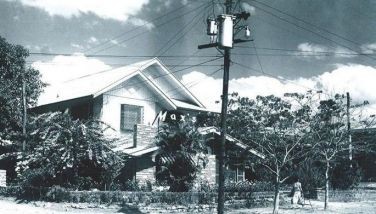The SEC has spoken
The Securities and Exchange Commission (SEC) recently had the opportunity to remind all and sundry that a corporation’s articles of incorporation as well as its by-laws are not useless pieces of documents.
In a decision issued by the SEC’s company monitoring and registration department regarding Ingasco’s application to amend its articles of incorporation (AOI) and by-laws which was subsequently upheld by the SEC en banc, Director Benito Cataran pointed out that “the articles of incorporation and by-laws are the corporation’s own private laws which substantially have the same effect as the laws of the corporation. In that sense, they become part of the fundamental law of the corporation with which the corporation and its directors and officers must comply.”
From the facts of the case, it appears that certain directors of Ingasco attempted to evade Article 8 of its AOI which specifically states that any amendments or changes to the Articles of Incorporation or the Code of By-Laws of the company requires the affirmative vote of the shareholders holding in the aggregate not less than 90 percent of the total outstanding shares of the company for it to be valid and effective. This requirement is reiterated in Article 2, Section 4 of Ingasco’s by-laws.
Ingasco, by the way, is a joint venture between Caloocan Gas Corporation (CGC), a leading manufacturer and distributor of industrial gases in the Philippines, and Taiyo Nippon Sanso Corp. (TNSC), a top Japanese distributor of industrial gases and manufacturer of air separation plants. CGC holds 30.19 percent of Ingasco while TNSC owns 69.81 percent.
Information reaching the SEC revealed that the Japanese directors and shareholders want to remove the 90 percent voting requirement for certain vital corporate actions and decisions in Ingasco, which unfortunately is contained in the AOI and the by-laws.
But in order to do this, the AOI and by-laws need to be amended. And to amend them, the 90 percent voting requirement again applies.
In a special board meeting last Dec. 15 where the matter of the amendment was proposed, two representatives of CGC who sit in the board – Raymond Chu and Mon Fui Chu (Murphy Chu) – objected to the proposed amendment of the AOI and by-laws of the company.
After this special board meeting, a shareholders meeting was held to bring the proposed amendments for ratification of the stockholders. Again, Mon Fui Chu, the authorized representative of CGC in the shareholders meeting, objected to the proposal to amend the AOI and by-laws.
As a result, the Japanese failed to obtain the 90 percent vote requirement.
On Dec. 20, the Japanese directors and stockholders of Ingasco filed an amended AOI and amended by-laws and told the the SEC that they obtained the necessary two-thirds vote of the shareholders, when what was required was at least 90 percent.
CGC, through its lawyers, wrote Cataran asking him to reject any unlawful attempt by Ingasco’s other shareholders to amend the AOI and by-laws of the company without the required affirmative vote of the shareholders.
Cataran heeded CGC’s request by reviewing the documents submitted by the other directors and stockholders of Ingasco. After thoroughly studying all the evidence presented to him, Cataran rejected the proposed amendments for failure to obtain the affirmative vote of the shareholders holding in the aggregate at least 90 percent of the total outstanding shares of Ingasco.
He said “compliance with the afore-cited provision of your articles of incorporation and by-laws are mandatory.”
Cataran’s position on the issue was affirmed by the SEC en banc on March 25.
But the fight does not stop there. CGC, through Raymond Chu, slapped a perjury complaint against the Japanese executives and directors involved for “knowingly, deliberately and willfully asserting a falsehood when they stated in the Directors Certificate (submitted to the SEC) that the AOI and By-Laws were duly amended despite its failure to obtain the required affirmative vote of the stockholders.”
It was also learned that libel and sexual harassment charges have been filed against one Japanese executive by two employees who claim that said executive was getting back at them for supporting the CGC camp in the anti-amendment move.
Another fertilizer scam?
Anomalies in the procurement of fertilizer have been uncovered by the Commission on Audit as early as 2003, or a year before the P728-million fertilizer fund scam involving former Agriculture Undersecretary Joc-joc Bolante.
State auditor Flerida Jimenez wrote in Feb. 2004 former National Food Authority administrator Arthur Yap – now a congressman from Bohol – regarding discrepancies she noted in NFA’s joint project with the Department of Agriculture in May 2003.
The alleged anomaly covers P432 million worth of fertilizer that was supposed to be bought by NFA for the DA, for purposes of distributing them to farmer-beneficiaries in time for the May-October 2003 cropping season.
Jimenez noted inconsistencies in the MOA signing dates and the grant of authority on the part of the NFA, since then Agriculture Secretary Cito Lorenzo authorized the powder fertilizer purchase through “negotiated contract 12 days before the signing of the MOA between DA and NFA.
The COA state auditor also noticed a glaring inconsistency on the part of NFA, when it claimed to have adopted the negotiated procurement, but held “three simultaneous biddings” in the National Capital Region in Luzon, Cebu in Visayas and Davao City in Mindanao.
Jimenez also wondered how invitations were sent to bidders in the regions and how many suppliers were invited to participate in light of the fact that save for Regions 1 and 6, Philphos was the lone bidder that won in Regions 2, 4, 7, 9, 10 and ARMM.
The COA also questioned the delay in the delivery of fertilizers to farmer-beneficiaries, apart from reports that prices awarded to Philphos “may still be considered high, considering the big volume of fertilizers purchased by NFA.” The powdered fertilizer were delivered after the farmers have planted their crops. So where did the fertilizers go?
As a result, COA has recommended to the Office of the Ombudsman the filing of plunder charges against Lorenzo, who signed the NFA-DA MOA for the DA, and Yap for NFA. Other signatories to the MOA were NFA Deputy Administrator for Operations Gregorio Tan Jr. and DA Undersecretary for Field Operations Edmund Sana, who both served as witnesses.
For comments, e-mail at philstarhiddenagenda@yahoo.com.
- Latest
- Trending


























